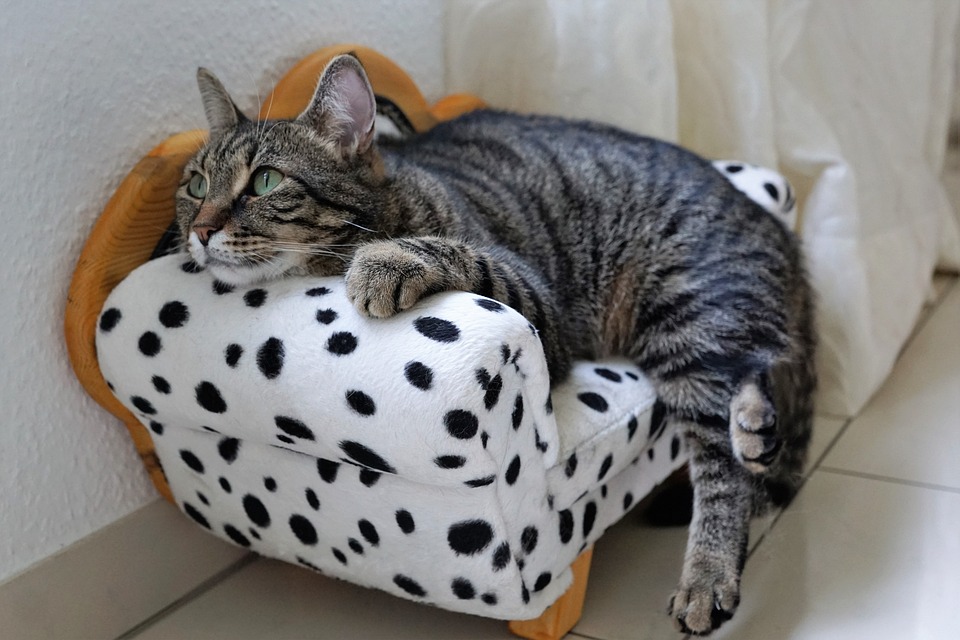Cats, despite their reputation for being independent and aloof, are not immune to experiencing anxiety. Just like humans, our feline companions can suffer from various forms of anxiety, which can significantly impact their overall well-being. As responsible cat owners, it is crucial to recognize the signs of anxiety in our furry friends and take appropriate measures to address their needs. In this article, we will explore common signs of anxiety in cats and provide helpful tips on how to alleviate their stress and promote a calm and happy environment.
Cats express anxiety in various ways, and it’s important to be able to recognize these signs in order to address the issue effectively. Here are some common indicators that your cat may be experiencing anxiety:
1. Increased Aggression or Irritability: If your normally docile cat starts displaying aggressive behavior such as hissing, scratching, or biting, it could be a sign of anxiety.
2. Excessive Hiding: Cats may seek out secluded spots, such as under furniture or in closets, when they feel overwhelmed or anxious.
3. Excessive Grooming: While grooming is a normal behavior for cats, excessive licking or biting of their fur can be a sign of anxiety or stress.
4. Changes in Appetite: Anxiety can also manifest through changes in your cat’s eating habits. They may either lose interest in food or begin overeating.
5. Urination or Defecation Issues: Cats suffering from anxiety may start urinating or defecating outside the litter box as a form of marking territory or seeking comfort.
6. Excessive Vocalization: Increased meowing, yowling, or other vocalizations can be a sign that your cat is feeling anxious or distressed.
7. Avoidance or Clinginess: Cats may either become overly clingy, seeking constant attention and reassurance, or they may actively avoid human interaction when anxious.
Once you’ve identified signs of anxiety in your cat, it’s essential to address the underlying causes and provide them with the support they need. Here are some effective strategies to help alleviate anxiety in your feline companion:
1. Create a Safe Space: Provide your cat with a designated safe area, such as a cozy bed or a hiding spot, where they can retreat to when they feel anxious. Ensure this space is quiet, comfortable, and away from any potential stressors.
2. Establish a Routine: Cats thrive on routine, so establish a consistent daily schedule for feeding, playtime, and relaxation. Predictability can help reduce anxiety and provide a sense of security.
3. Environmental Enrichment: Engage your cat in playtime activities that stimulate their natural instincts, such as hunting or chasing toys. Offer scratching posts, climbing trees, and interactive puzzles to keep them mentally and physically engaged.
4. Provide Vertical Space: Cats feel safer when they have access to elevated spaces. Install shelves or provide cat trees to allow your feline friend to observe their surroundings from a higher vantage point.
5. Pheromone Therapy: Consider using synthetic pheromone diffusers or sprays, such as Feliway, which can help create a calming environment and reduce anxiety in cats.
6. Consult a Veterinarian: If your cat’s anxiety persists or worsens despite your efforts, consult a veterinarian who can provide a comprehensive evaluation and recommend additional treatments such as anti-anxiety medications or behavioral therapy.
Here are some frequently asked questions about anxiety in cats:
Q: Can changes in the household environment cause anxiety in cats?
A: Yes, cats are sensitive to changes in their surroundings. Moving to a new home, introducing new pets, or changes in daily routines can all trigger anxiety in cats.
Q: How can I help my cat cope with separation anxiety?
A: Gradually acclimate your cat to being alone by leaving them for short periods and gradually increasing the duration. Provide stimulating toys or treats that can distract and engage them while you’re away.
Q: Are there natural remedies to help alleviate cat anxiety?
A: Some natural remedies, such as chamomile or lavender, can have calming effects on cats. However, it’s important to consult with a veterinarian before using any natural remedies to ensure their safety and effectiveness.
Q: Can anxiety in cats lead to health problems?
A: Chronic anxiety in cats can weaken their immune system and make them more susceptible to various health issues. It’s crucial to address anxiety promptly to prevent its negative impact on their overall well-being.
Recognizing and addressing signs of anxiety in cats is essential for their overall health and happiness. By understanding the indicators of anxiety and implementing appropriate strategies to alleviate stress, we can create a calm and supportive environment that helps our feline companions thrive. Remember, if you are unsure or concerned about your cat’s anxiety, consult with a veterinarian for personalized guidance and professional advice.








